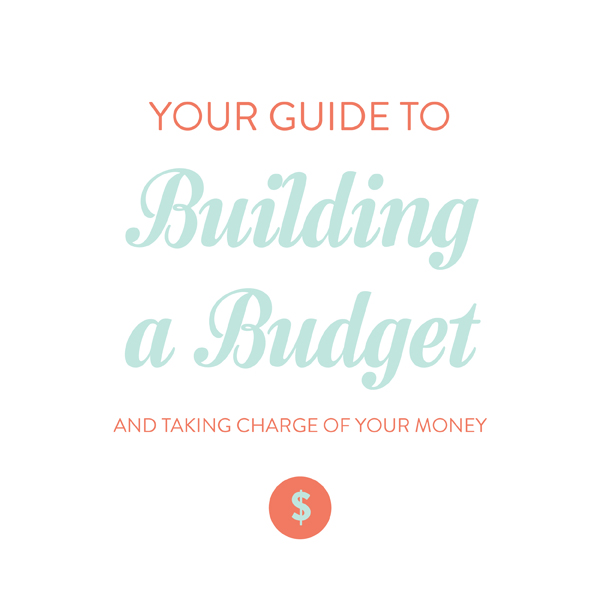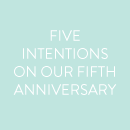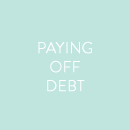Marvelous Money: Building a budget
I have followed a written budget for seven years now, and I can confidently say that it is the number one reason I feel at peace with my finances. I don’t worry about whether or not we’ll have enough money to pay our rent or car loans every month; I know we will. The headspace this surety frees up allows me to focus on my dreams and keeps me on track to reach my lifetime financial goals. There are few things better than that! I know you all are excited to talk budgeting, so let’s get cracking.
So what does it mean, exactly, to build a budget? Dave Ramsey likes to say that budgeting is “telling your money where to go.” I like that image. A budget helps me be purposeful about how I spend and save instead of just closing my eyes and hoping. While there are many ways to track a budget (some of which we’ll be covering in the next few weeks!), building a budget is pretty standard. It’s all about two things — income and expenses — which make up your cash flow.
1. Calculate your monthly net income (your gross income minus taxes). For most of us, this is simply our paycheck.
2. Add up all of your fixed expenses. Fixed expenses are difficult or impossible to change and are the same (or roughly the same) every month: rent, utilities, your electric bill, student loans, car loan(s), auto insurance, health insurance, etc.
3. Calculate your monthly contribution to your financial goals. Like the experts say, pay yourself first. Put money into an emergency fund, reduce debt with extra payments, save for a down payment, save for retirement, and/or feed an investment account. If it’s a priority for you, include charitable giving in this step. Some people choose to do this as a percentage of their income (i.e. 10% for tithing), while others choose a set amount. Whatever you do, do not skip this step! Treat your savings like any other budget line item, not as something optional if there’s money left over.
4. Add up all of your variable expenses. Like the name implies, these are things that are not externally set, so you could, for example, cut back here if you wanted to move faster toward your goals. Examples include groceries, dining out, clothing, entertainment, gifts, travel, gas, personal care, etc.
5. Put it all together. When you subtract your fixed expenses, your contributions to your financial goals, and your variable expenses from your net income, there are three possible outcomes: you’ll either have a surplus, you’ll break even, or you’ll have a deficit. If you come out with a surplus, you can either save more or spend more (assuming you’re already saving the recommended amounts!). If you break even, perfect! If you have a deficit, it’s time to take another look at your figures (most likely your variable expenses), and adjust numbers until you’re in the clear. No more money “accidents,” people! By the time your budget is finished, every dollar will have a destination!
Easy to understand, a bit harder to follow in practice! But we’ll get to that soon enough. Your homework for the week: walk through these steps, and start calculating! If you’ve never made a budget before and are unsure how much to allocate for certain categories, I’d suggest looking back through last month’s expenses (maybe on a credit or debit card statement) and estimating from there. It might take a few months to get the balance across categories just right.
Next week, I’ll show you how John and I track our budget, and the week after that, we’ll have a special guest post on another tracking option!
Happy budgeting! And be sure to leave questions or tips in the comments!!




















When I saw your first Marvelous Money post, I felt inspired to conquer one of my goals: make and stick to a budget. I loved hearing what you had to say about the topic today! A lot of young people use Mint.com. Let me just say, I LOVE it. I joined last month, and it connects with all of your bank accounts. It sorts all of your expenses for you, and the program makes suggestions about how much to spend in each area. You’re also able to set personal savings goals. I signed up for weekly texts and e-mails about my accounts, so I’m able to stay on track. There’s something about a program telling me I’m spending too much or are doing fine in different areas that makes me much more accountable to sticking to my budget rather than straying off course. The best part is the program is free!! (**This sounds like an endorsement. I don’t work for them. I’ve just found it really helpful. : )
Like Carly above, I too love Mint.com. It’s a great way to start on budgeting. If you find you can’t do what you want, then you have some basic experience to make your own sheets, etc. Plus they have a mobile app to track cash expenses too!
My husband and I sit down every month and budget where all of our money will go. I write everything down while he inputs everything into an excel spreadsheet. This really works for us because we are living off only 50% of our income while we pay down our debt, fund our emergency fund and save for a down payment. We even budget in expenses like oil changes and dry cleaner bills. This has really helped us stick to our goals and we’ve already been able to pay a few debts off and put money away. It’s motivating and rewarding. While we don’t agree with all of Dave Ramsey’s rules or advice, we have taken the things that work for our lifestyle and been able to see real progress.
Looking forward to next weeks post! Really loving this series, Em.
Y’all, Mint is great! We have used it in the past, and I highly recommend it. More about our experience in coming posts!
Started writing out my budget today! I’ve always struggled because I work an hourly job that doesn’t always guarantee the same paycheck each month, but I’m working on basing this off of the minimum I know I’ll have coming in and then if any extra money comes in it will be a bonus for savings!
[…] and stick to a budget (based on Nancy and Em’s recommendations–thanks so much for these series, […]
I just discovered your site today and was thrilled to find this topic. Can’t wait to hear more about this! :)
[…] and stick to a budget (based on Nancy and Em’s recommendations–thanks so much for these series, […]
I too like mint. I have also discovered that as a person who travels 25 days of the month it is difficult to carry around all the cash. Someone suggested opening separate accounts for like the food contribution account. So your still directing your money.